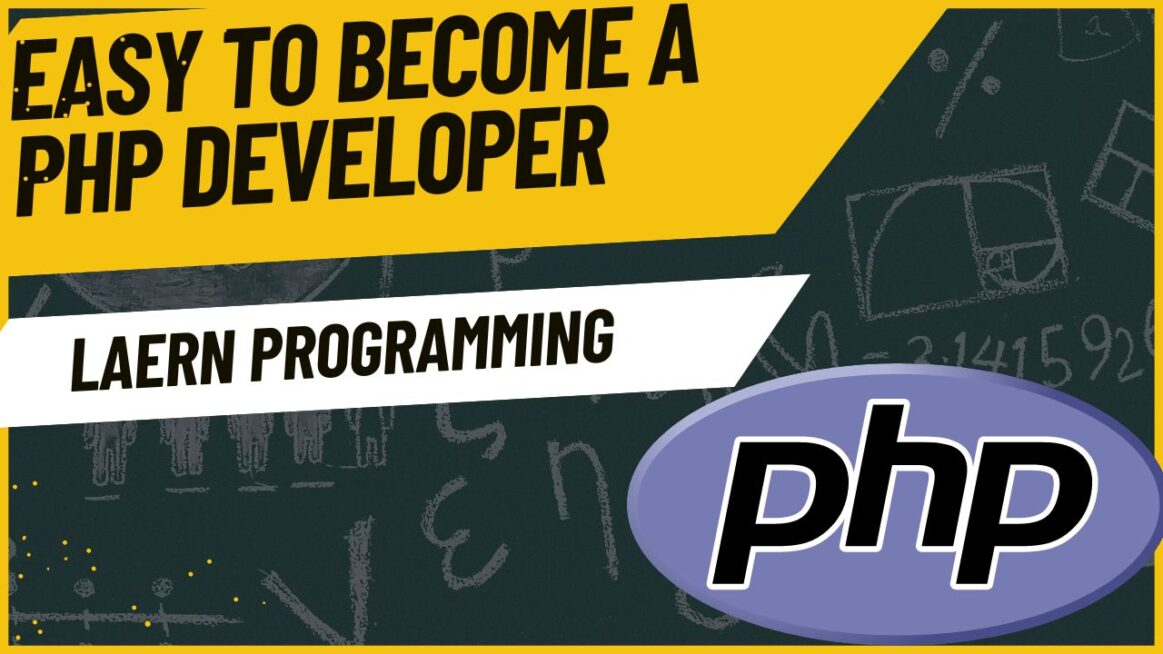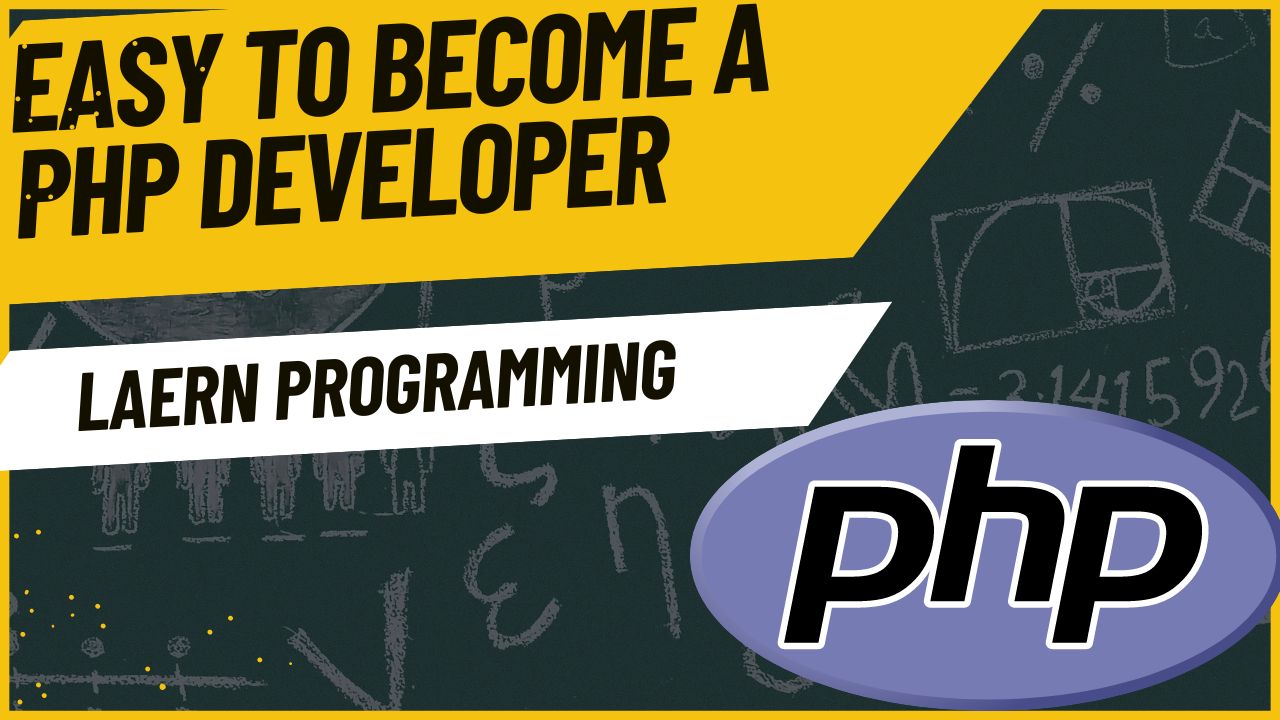Introduction
PHP (Hypertext Preprocessor) is one of the most widely used server-side scripting languages for web development. Becoming a PHP developer opens up opportunities in building dynamic websites, e-commerce platforms, and content management systems like WordPress. In this guide, we’ll walk through the steps to become a proficient PHP developer and provide useful resources to help you along the way.

Step 1: Understand Web Development Basics
Before diving into PHP, you should have a solid foundation in web development fundamentals, such as:
- HTML: The backbone of web pages, providing structure.
- CSS: Used for styling and layout of web pages.
- JavaScript: Adds interactivity to your web pages.
Resources:
- W3Schools HTML Tutorial
- CSS Basics at Mozilla Developer Network (MDN)
- JavaScript Tutorial at Codecademy
Step 2: Learn PHP Syntax and Fundamentals
Start learning the basic syntax of PHP, such as how to declare variables, use functions, and work with control structures. PHP is embedded into HTML to create dynamic web content, so you’ll also learn how to integrate it with HTML.
Key PHP Topics:
- Variables and Data Types
- Control Structures (if, else, switch)
- Loops (for, while)
- Functions
Resources:
Step 3: Set Up a Local Development Environment
To start developing in PHP, you’ll need a local server environment. Popular choices include:
- XAMPP: A free and open-source cross-platform web server stack that includes Apache, MySQL, and PHP.
- MAMP: Similar to XAMPP but tailored for Mac OS users.
Resources:
Step 4: Understand MySQL and Databases
PHP often interacts with databases to retrieve, store, and manage data. Learning MySQL is essential for most PHP developers as it pairs well with PHP to build full-stack applications.
Key MySQL Topics:
- SQL Queries (SELECT, INSERT, UPDATE, DELETE)
- Creating and Managing Databases
- PHP Data Objects (PDO)
Resources:
Step 5: Learn Object-Oriented Programming (OOP) in PHP
OOP allows you to structure your PHP code in a more scalable and maintainable way by using objects and classes. As you advance, understanding OOP will become crucial for larger projects.
Key OOP Concepts:
- Classes and Objects
- Inheritance
- Interfaces and Traits
- Namespaces
Resources:
Step 6: Build Projects and Practice
Start building real-world projects to apply your knowledge. Focus on creating simple applications like a personal blog, to-do list, or contact form. This will help you reinforce your learning.
Project Ideas:
- Dynamic Blog
- User Registration and Login System
- E-commerce Shopping Cart
Resources:
Step 7: Learn a PHP Framework
Frameworks can help you write PHP code faster and more efficiently. Some of the most popular PHP frameworks include:
- Laravel: Known for its elegant syntax and rich features.
- Symfony: A robust framework used in enterprise-level applications.
- CodeIgniter: A lightweight framework that’s easy to learn.
Resources:
Step 8: Join PHP Communities and Contribute to Open Source
Becoming part of a developer community can accelerate your learning and career. You can get involved in open-source projects and participate in forums.
Resources:
Step 9: Stay Updated with PHP Trends and Best Practices
PHP is constantly evolving. Stay up-to-date with the latest updates, best practices, and trends by following blogs, YouTube channels, and podcasts.
Resources:
Conclusion
Becoming a PHP developer takes time and consistent practice, but the journey is rewarding as you gain the skills needed to build powerful web applications. By following these steps and utilizing the resources provided, you’ll be on your way to mastering PHP and advancing in your web development career.
Final Thought:
Start small, keep practicing, and explore new features and frameworks as you become more confident. PHP development is a growing field, with many opportunities waiting for you to dive in!

